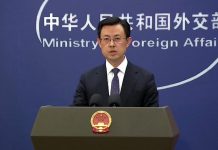
Bangkok Hospital Chantaburi, has further warned that young children across the nation are at risk of Respiratory Syncytial Virus (RSV), reminding communities that there is no vaccine for the disease and that measures similar to COVID-19 should be observed.
Pediatrician at Bangkok Hospital Chantaburi Dr. Chariya Pojtaweekriat, said today that RSV cases at the facility have risen by 50 percent recently, with most patients being infants and young children. Doctors have been treating symptoms that include high fever and mucus buildup but are reminding parents that no direct vaccine for the virus exists. In some cases of heavy mucus build up, patients have had to have their respiratory pathways expanded for mucus extraction.
Pathiya Chanroongsanga, a parent in Muang district of Chantaburi, admitted to worrying about the situation as she has a pre-school aged child. She acknowledged however that her child’s school is treating RSV with the same measures as used for COVID-19 while giving her view that any case of RSV contraction should lead to the temporary suspension of learning.
RSV can trigger infections in the upper and lower respiratory systems and affects both children and adults. Young children and people over 65 years old may experience severe symptoms, as can those with a chronic illness or impaired health.
Deputy Public Health Officer on Preventive Medicine for Phitsanulok, Dr. Rattaphum Champunot explained that RSV is common during the rainy and cool seasons. Symptoms initially resemble flu and include mucus and a cough. It has recently spread widely among young children.
RSV can be prevented through regular hand washing, cleaning of items used by children and avoiding crowded spaces. Infections that trigger severe symptoms should immediately prompt a visit to the hospital.(NNT)
 |
 |
 |





